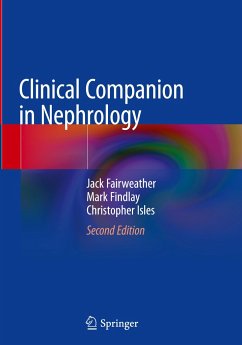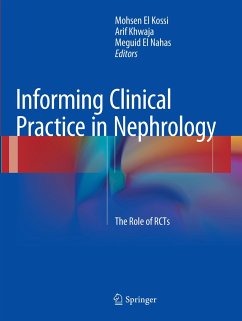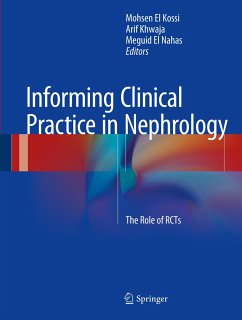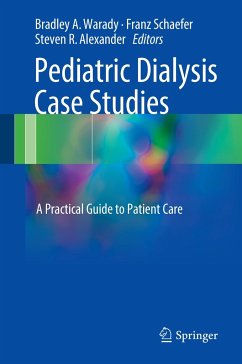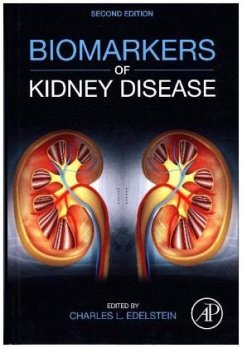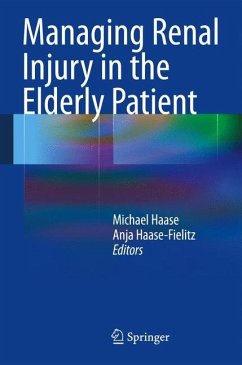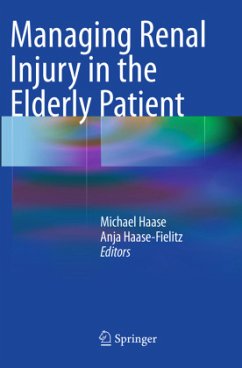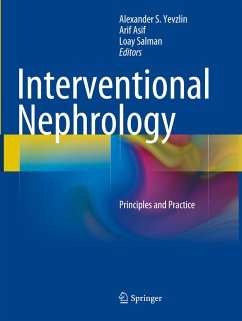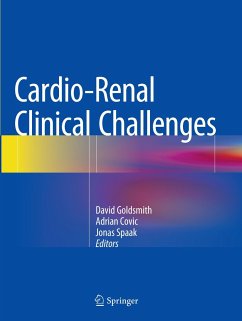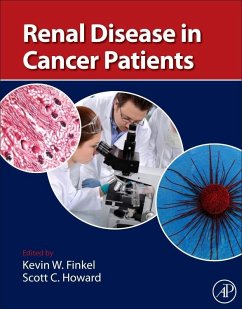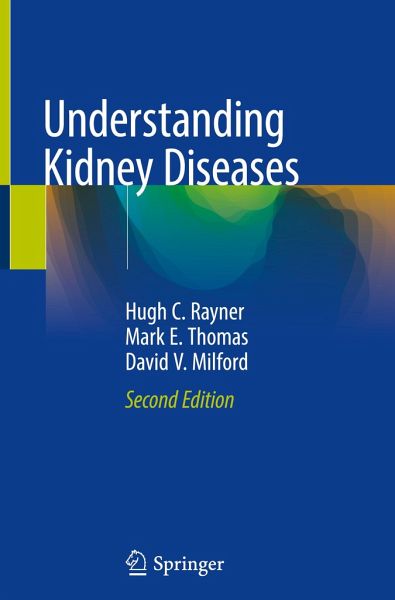
Understanding Kidney Diseases
Versandkostenfrei!
Versandfertig in 6-10 Tagen
106,99 €
inkl. MwSt.
Weitere Ausgaben:

PAYBACK Punkte
53 °P sammeln!
This book combines the reference material of a nephrology textbook with the everyday relevance of a clinical handbook. This second edition develops and expands upon the success of the first. All the content has been updated and entirely new chapters on acid-base disorders and stone disease have been added.Understanding Kidney Diseases includes over 60 real-life case studies and is illustrated with over 200 figures. Readers can test their knowledge with a bank of multiple-choice questions and put it into practice by answering questions that patients frequently ask. The book provides all that st...
This book combines the reference material of a nephrology textbook with the everyday relevance of a clinical handbook. This second edition develops and expands upon the success of the first. All the content has been updated and entirely new chapters on acid-base disorders and stone disease have been added.
Understanding Kidney Diseases includes over 60 real-life case studies and is illustrated with over 200 figures. Readers can test their knowledge with a bank of multiple-choice questions and put it into practice by answering questions that patients frequently ask. The book provides all that students, residents and fellows need in order to approach a patient with a kidney problem with confidence.
Understanding Kidney Diseases includes over 60 real-life case studies and is illustrated with over 200 figures. Readers can test their knowledge with a bank of multiple-choice questions and put it into practice by answering questions that patients frequently ask. The book provides all that students, residents and fellows need in order to approach a patient with a kidney problem with confidence.





